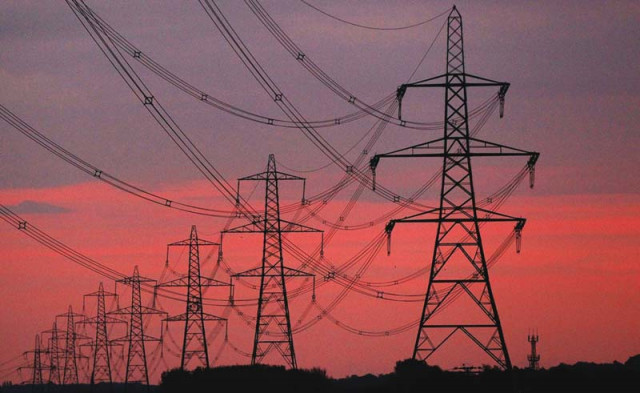CPEC power project sponsors to pay $0.15m each in security cost
Project operators oppose the cost, saying security is government’s duty

PHOTO: REUTERS
Project sponsors have been asked to pay $150,000 each in protection cost in the very first year. The cost will continue to increase 3% per annum for the remaining project life.
‘CPEC to integrate regional economies’
The power sector regulator has issued the directive despite fierce opposition from the project operators with the argument that it is the duty of the government to ensure sustainable security of the projects.
The National Electric Power Regulatory Authority (Nepra), in a decision, announced on Thursday “independent power producers of China-Pakistan Economic Corridor projects shall pay $150,000 per annum subject to 3% indexation for each year after the first year from the commercial operation date, as required under the security protection clause of the Implementation Agreement (of the projects), directly to the relevant ministry/agency designated for the purpose during the construction period as well as during the operation period.” Nepra has issued the policy directive in compliance with a summary sent by the Economic Coordination Committee to the regulator late last year.
Earlier, the project operators were required to pay the security cost only if they demanded additional protection from the government. The cost varied in line with the scale of the demand, but it would not exceed $150,000 per year and a 3% increase per year.
Total cost
Nepra has notified a total of 19 power projects that will be developed under the CPEC programme. These will have a cumulative capacity of 9,887 megawatts and coupled with a gigantic project for the transmission of 4,000 megawatts of electricity, the total cost stands at $15.56 billion.
Accordingly, the total security cost to be paid by the project sponsors in the first year comes in at around $2.85 million.
Impact on consumers
A Nepra official explained that small power projects had not been allowed to pass the security cost on to consumers. Of the 19 operators, 10 are small players.
Nepra in its decision said: “...10 out of 19 projects have zero financial impact, three projects have a financial impact of less than one paisa per unit and six projects have a financial impact of less than half paisa per unit. Further, this financial impact shall become lesser and lesser with the annual indexation of 3% to the amount of $150,000/annum to be contributed by the IPP.
“In future, if the overall security situation improves and government of Pakistan considers that special security arrangements are no longer needed and the special security force/division is released from this responsibility, no payment shall be made by the power purchaser on account of special security arrangement.
CPEC projects in AJK to be made environment-friendly
“CPPAG (Central Power Purchasing Agency-Guarantee) shall submit a report every five years regarding the status and implementation of the decision in the matter,” it said.
Zonergy, one of the project operators under CPEC, said in its comments to Nepra that if the government would impose security cost on the operators, then it would remove private security guards from its projects and the government would ensure sustainable security.
Published in The Express Tribune, August 4th, 2017.
Like Business on Facebook, follow @TribuneBiz on Twitter to stay informed and join in the conversation.



















COMMENTS
Comments are moderated and generally will be posted if they are on-topic and not abusive.
For more information, please see our Comments FAQ